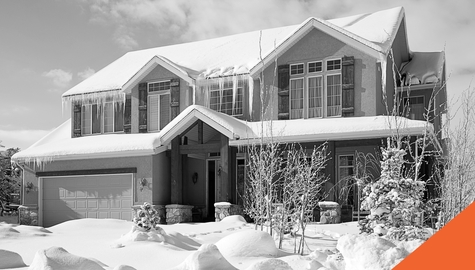Keeping the Cottage In the Family
Thursday, 27 August 2020
A family cottage or vacation home is one of the greatest rewards in life where you can create beautiful memories with your children and grandchildren. In the back of your mind, however, you need to start planning what to do with the family cottage when you are no longer able to visit or eventually pass away. In most cases families will want to keep the property for sentimental reasons, which is why family cottage succession planning is an important part of estate planning. There might be some difficult decisions ahead, but the outcome of keeping the family cottage for generations is a great legacy to leave behind! In this blog we will discuss the many approaches of how to keep the cottage in the family and how BIG can help.
The Tough Questions
Transferring a recreational property to the next generation requires careful tax and estate planning, but you should first start with the conversation among family members. It may not be an easy conversation, depending on your family situation, but try to put your emotions aside, get honest answers from your family, and make the right decision for your situation. Here are some questions to get you started:
- Can you really afford to leave the family cottage to your children? Or will you need the money to help fund your retirement?
- Do all your children want to keep it? Or would some prefer to receive a cash settlement?
- Will the ones who inherit the cottage be able to pay for the property taxes and ongoing maintenance?
- Are your kids able to share it equally, or are they spread out across the country?
- Could you experience conflict due to personality differences?
How to Keep the Cottage in the Family
Unless you decide you must sell your cottage to fund your retirement, there are many different options available to you to keep the cottage in the family. While we discuss these avenues, keep in mind that you will want to seek professional financial advice before making any final decisions.
Transfer the Family Cottage to Your Beneficiaries Now
There are a few approaches to this: gifting, selling, or making your kids joint tenants. The upside is you will save the probate fees that would be charged as a part of the estate when you die. The downside is that gifting or selling the cottage now means you are relinquishing control of the property; the cottage is no longer your asset and your beneficiaries could sell it or it could become an exposed asset in bankruptcy or divorce. Another challenge would be the tax bill you will receive for the capital gains as your property has appreciated in value over time. In this case, you can consider setting it up as a five-year “sale” to avoid paying a large one-year tax bill.
Bequeath it in Your Will
There are two possibilities when you give the cottage as an inheritance to your children.
- You can name them as your heirs in your will, at which point they will become co-owners of the asset. You may want to request your kids sign a co-ownership agreement. In the agreement you can stipulate who is responsible for the bills and maintenance of the property as well as how co-owners are permitted to sell their portion of the asset to avoid potential conflict in the future.
- Alternatively, you can create a trust that owns the cottage and each child receives a portion of the trust. A trust can help you continue to allocate funds to your preference (ie. maintenance of the property). The downside to this approach is that a trust costs money to set-up and maintain – usually around 1%-2% of the asset’s value.
How Life Insurance Can Help Keep the Cottage in the Family
If one or more of your children are not interested in inheriting a share of the family cottage – perhaps one lives further away and will not use it often – generally the one who wants to keep it must buy out the other siblings that don’t. If this is outside their financial capability, life insurance is a great solution! In your estate planning, life insurance can be used to equalize your illiquid assets by allowing the cottage to be given to the child who wants it while the other children can receive an equal value in a cash settlement.
Life insurance can also be used to pay off whatever is left of the mortgage to eliminate the financial burden on the beneficiaries. It can also serve to cover the tax burden from capital gains by allocating funds from your life insurance payout. Another alternative is to set up a cottage trust for the beneficiaries where your heirs can use the money to pay the outstanding taxes on the cottage.
Other Financial Tips for Your Family Cottage
Make It Your Principal Residence
In the case that your family cottage has appreciated more than your other property, designating it as your principal residence will shelter it from capital gains tax. This strategy is used to reduce your estate taxes. As long as you sleep there occasionally, it qualifies.
Set Up the Family Cottage as a Non-Profit Organization
In this situation, future generations can use the cottage without incurring tax on capital gains or probate fees. Each family member becomes a member of the organization and pays dues, similar to a private club. Creating a non-profit organization for this purpose works especially well for a large vacation home being shared among an extended family.
As you take time deciding which approach is best for you, our trusted financial advisors and life insurance brokers are here to help you plan and strategize the best solution. Take an honest look at your financial position and if, at retirement, you decide you can afford to gift your cottage to your family by any of the options above, we can help you carefully plan and manage the best outcome. Let your legacy of cottage life live on and contact us today for more information.



